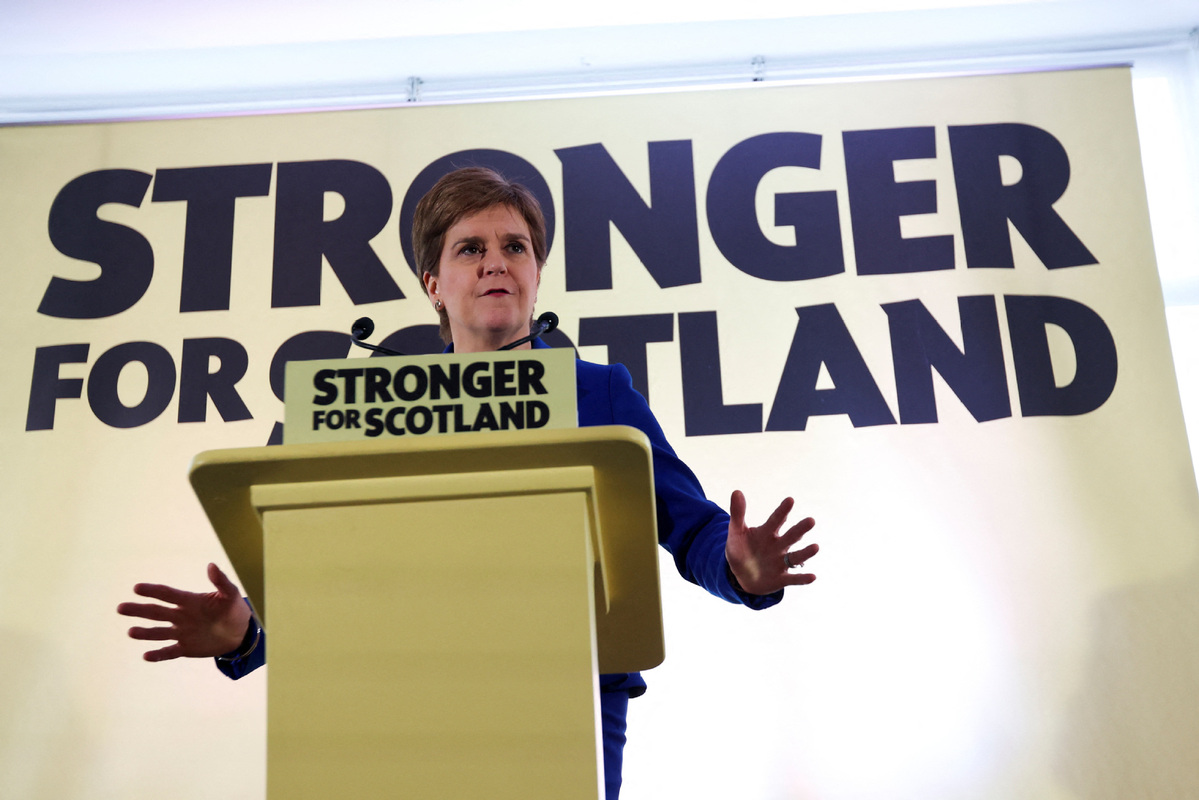Court ruling dents Scottish hopes of second vote on independence
By JULIAN SHEA in London | China Daily Global | Updated: 2022-11-24 09:28

Scotland's hopes of securing independence from the United Kingdom have suffered a major blow after judges at the Supreme Court in London ruled unanimously that only the British government, not the devolved one in Edinburgh, has the right to call a referendum on the issue.
The subject was put to the public vote in 2014, with 55 percent of voters in Scotland choosing to remain part of the union, but the British political landscape has changed significantly since then, most obviously over Brexit.
In the 2016 referendum on Britain's membership of the European Union, 62 percent of Scots voted to remain in the EU but with the vote across the whole of the UK being 52 percent in favor of leaving, Scotland was taken out against its will.
Scotland's First Minister Nicola Sturgeon had already pencilled in a date for the so-called Indyref2, on Oct 19 2023, but that has been made null and void by the ruling.
Explaining it, the Supreme Court president Robert Reed said a referendum "would have important political consequences in relation to the Union and the United Kingdom Parliament …it is therefore clear that the proposed bill has more than a loose or consequential connection with the reserved matters of the Union of Scotland and England, and the sovereignty of the United Kingdom Parliament."
The prospect of independence is a fiercely divisive issue in Scotland. At the 2019 general election, Sturgeon's independence-backing Scottish National Party (SNP) won an additional 13 seats, at the expense of both the Conservative and Labour parties, to take its share up to 48 out of Scotland's 59 seats in the Westminster Parliament, with 45 percent of the overall vote.
At the most recent election for Scotland's devolved Parliament in May 2021, the SNP emerged as the biggest party, with 64 out of the 129 seats available, but falling just short of an outright majority.
Sturgeon said she was disappointed by the ruling but would use the next general election as an informal referendum on the issue.
"A law that doesn't allow Scotland to choose our own future without Westminster consent exposes as myth any notion of the UK as a voluntary partnership and makes (the) case for independence," she said.
But her political opponents said they hoped the ruling would put the issue to bed.
Ruth Davidson, the former leader of the Scottish Conservatives, welcomed what she called the "unanimity and clarity" of the court.
"No doubt the SNP will try to leverage this ruling for further grievance," she said. "If only the huge effort, capacity and resource spent bidding to rerun the original vote had been put into health, education and the economy."
Scottish Labour leader Anas Sarwar said it was time to move on and focus on bigger national issues.
"There is not a majority in Scotland for a referendum or independence, neither is there a majority for the status quo," he said. "One thing is clear — there is a majority in Scotland and across the UK for change. A Labour government will deliver that change."
























